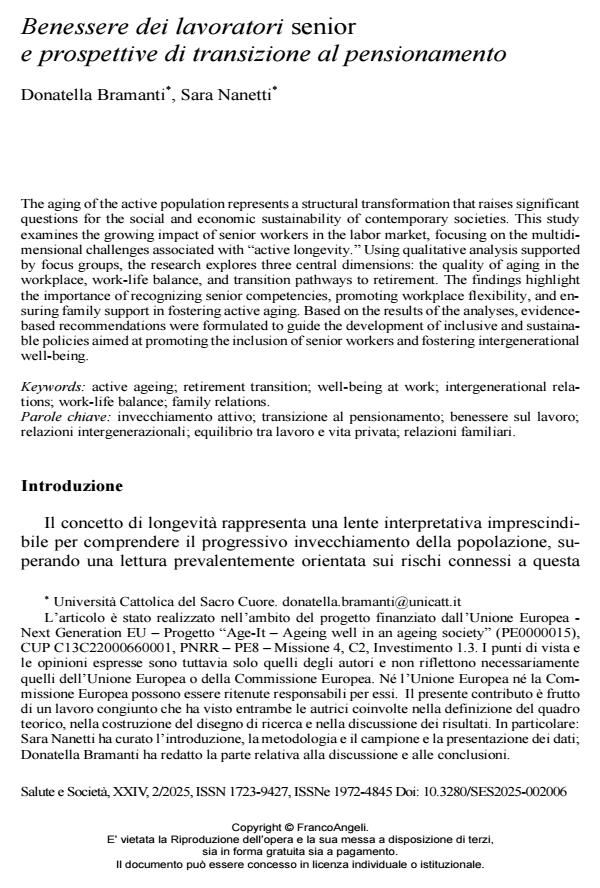Benessere dei lavoratori senior e prospettive di transizione al pensionamento
Journal title SALUTE E SOCIETÀ
Author/s Donatella Bramanti, Sara Nanetti
Publishing Year 2025 Issue 2025/2
Language Italian Pages 12 P. 65-76 File size 263 KB
DOI 10.3280/SES2025-002006
DOI is like a bar code for intellectual property: to have more infomation
click here
Below, you can see the article first page
If you want to buy this article in PDF format, you can do it, following the instructions to buy download credits

FrancoAngeli is member of Publishers International Linking Association, Inc (PILA), a not-for-profit association which run the CrossRef service enabling links to and from online scholarly content.
The aging of the active population represents a structural transformation that raises significant questions for the social and economic sustainability of contemporary societies. This study examines the growing impact of senior workers in the labor market, focusing on the multidimensional challenges associated with “active longevity.” Using qualitative analysis supported by focus groups, the research explores three central dimensions: the quality of aging in the workplace, work-life balance, and transition pathways to retirement. The findings highlight the importance of recognizing senior competencies, promoting workplace flexibility, and ensuring family support in fostering active aging. Based on the results of the analyses, evidence-based recommendations were formulated to guide the development of inclusive and sustainable policies aimed at promoting the inclusion of senior workers and fostering intergenerational well-being.
Keywords: active ageing; retirement transition; well-being at work; intergenerational relations; work-life balance; family relations.
Donatella Bramanti, Sara Nanetti, Benessere dei lavoratori senior e prospettive di transizione al pensionamento in "SALUTE E SOCIETÀ" 2/2025, pp 65-76, DOI: 10.3280/SES2025-002006